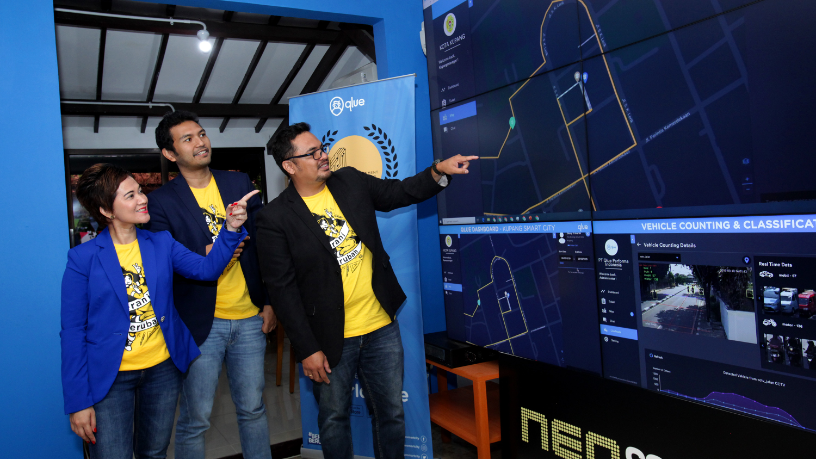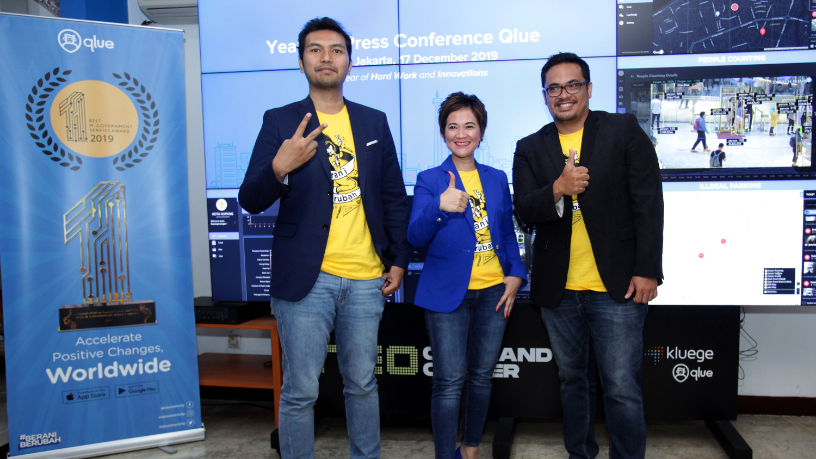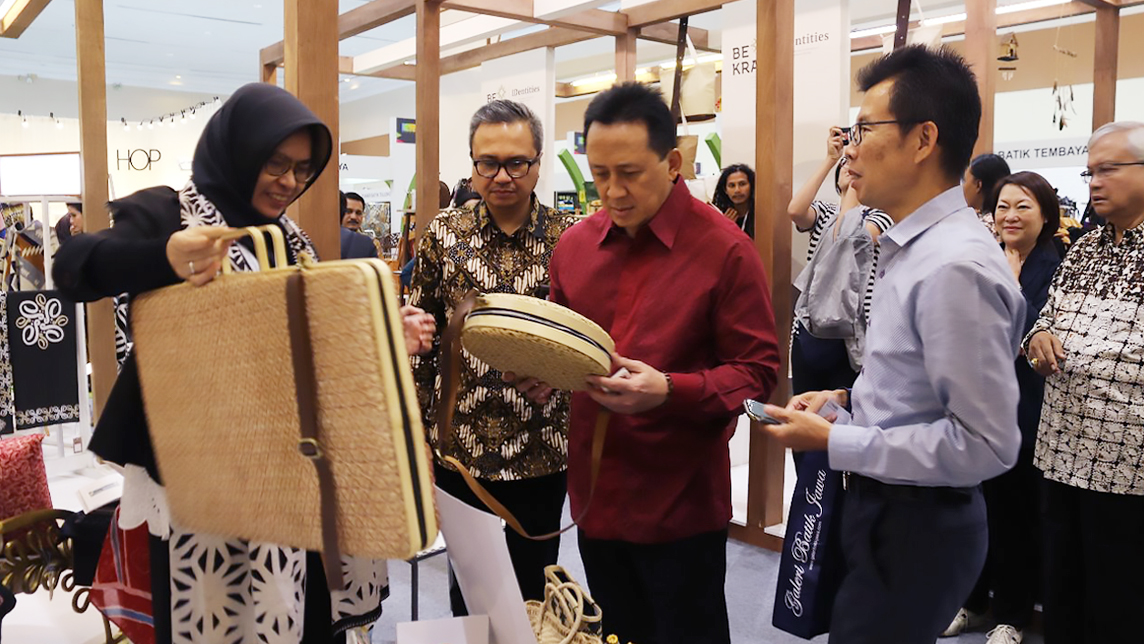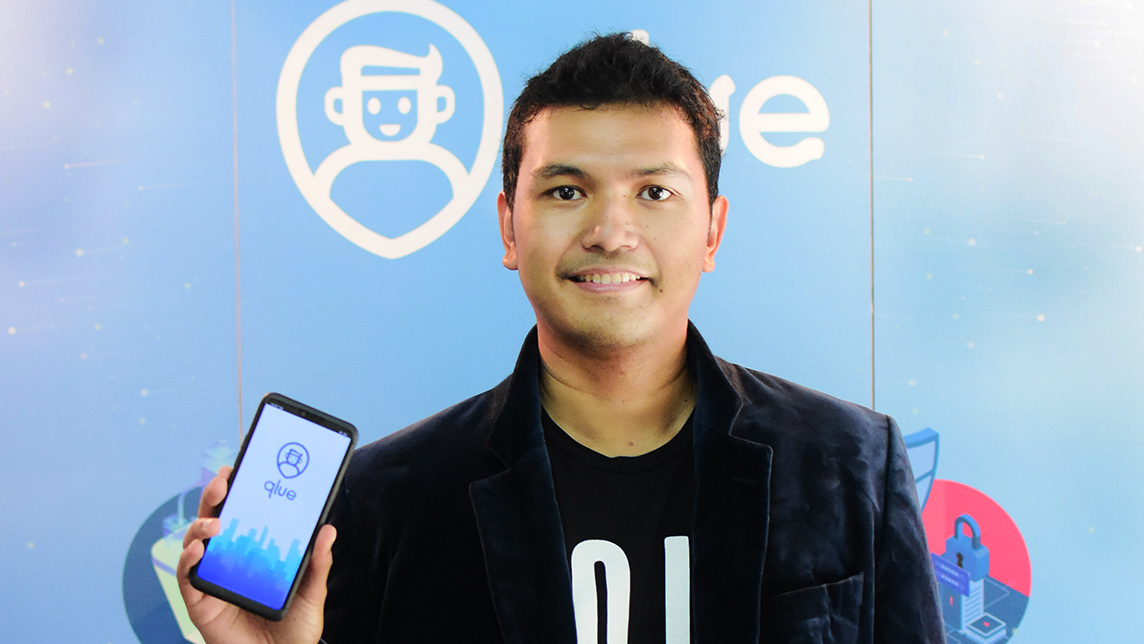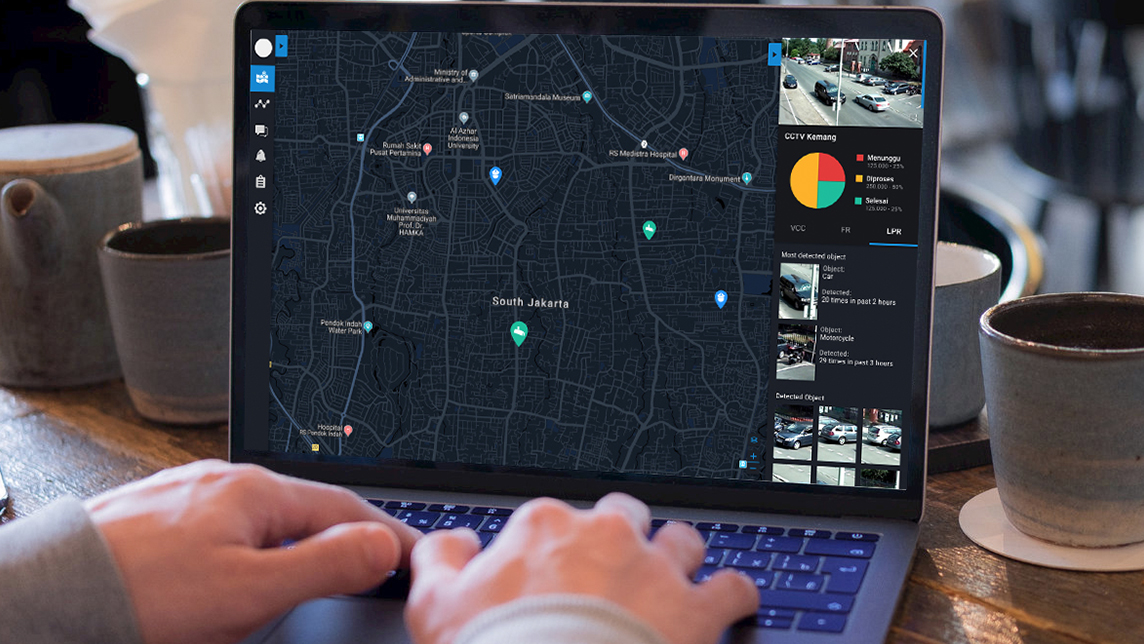In a wide-ranging interview with CompassList, Qlue's CEO Rama Raditya and Chief Commercial Officer Maya Arvini also shared their thoughts on protecting individual privacy when handling citizens' data in smart cities and the lack of clarity in regulation of use of facial recognition technology in Indonesia.
Regarding Qlue's expansion outside Indonesia, can you tell us again which countries you've expanded your services to?
Maya Arvini (M): We've activated in eight countries. We have a representative office in Kuala Lumpur, Malaysia, and we're active in Cyberjaya and Medini (Johor Bahru). We're also in Vietnam, specifically Ho Chi Minh and Da Nang City; Taiwan; Dubai in the UAE; Barcelona and Madrid; and most recently I presented in Milan, Italy. We are also finalizing new implementations that are planned to launch in the beginning of the year.
Is the implementation at the scale of what we see in Jakarta, or...
Rama Raditya (R): The implementation is mostly in terms of citizen reporting and dashboard. Outside of Indonesia, most of our clients are not looking for our AI and IoT products, but rather our citizen participation system. Surprisingly, it's not there yet for them. In places like London there are already a lot of cameras, and some of the cities are already using AI for these purposes, yet they haven't really implement citizen participation mechanics. It's actually the cheapest and most powerful system, powered by millions of people.
How did you reach out to overseas clients?
M: We participated in global accelerators like RISE.AI in Bangkok, where we networked with investors and corporate clients from all over Asia. As a participant, we showed a demo and pitched before the clients, and from there we started some of our international relationships.
On the other hand, our attendance at the Barcelona World Smart City Expo was completely unexpected. We were asked by the embassy in Spain to lead Indonesia's delegation. We led a delegation of Indonesian municipal leaders, and we were asked to prepare a booth and exhibition even though it was only a month before the actual event. We received help from the Embassy of Spain here too.
After that event, we established connections with partners in Europe and found new opportunities. These activation partners are the first to detect the opportunities for us to work with municipal governments, which is what led to our presentation in Milan. They were quite amazed by our credentials and track record, and agreed to continue towards a trial.
Are the expectations from foreign clients different compared to Indonesian clients, in terms of product, or even things like transparency and privacy?
R: In terms of privacy, our infrastructure is ready. Most clients, especially government, want on-premise data centers, and we've been providing that. Some enterprise clients are more open to cloud-based storage though. We also familiarize ourselves with legal privacy requirements and set clear boundaries on what data cannot be shared with third parties, because we're working with citizens' data.
Speaking about privacy, Qlue uses technology like facial recognition and interacts a lot with citizen data. Is there any worry from Qlue or its partners about the implications on user privacy of such technologies?
R: The public is more concerned about these things, because they are worried about their facial data being captured by Qlue. Our tech is more about security, though. Of course, our clients are less concerned, because they're the ones who are asking for it. However, regulations regarding these technologies are still not implemented well in Indonesia, and in some cases are still very “grey.”
We're still not sure about facial recognition regulations in Indonesia. We hope to talk to the Ministry of Communication and Informatics so we can push for the regulations that are aligned with the President's vision.
These technologies are also polarizing overseas; they're embraced in China, banned in many US organizations, and has attracted mixed reactions in Europe, although it seems to be used widely in London. Where Indonesia will go depends on the central government, and we can only accommodate.
The President's approach seems to be “if the demand is big and the public demands it, then it should be there,” as he demonstrated in the case of Gojek. We're still not sure what it's going to be like for facial recognition, but I feel it might follow the same pattern.
What about clients in Europe?
R: Mostly they're not engaging us for AI work, but for citizen reporting and dashboard (data integration). In some cases they already have their own cameras and facial recognition system, but we help integrate the data in the dashboard.
How does Qlue prevent the misuse of such technologies, from computer vision to AI?
R: We ensure the security of our products and the data, making sure that sensitive data is stored on-prem[ises] on the client side. We also make sure that our products are tough to crack through measures like encryption.
